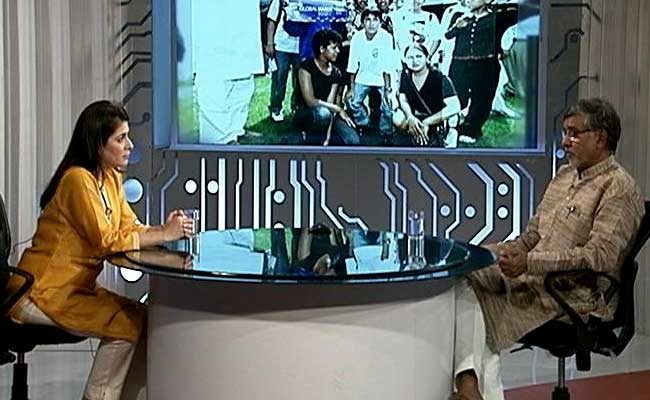Kailash Satyarthi won the Nobel Peace Prize in 2014.
New Delhi:
Nobel laureate Kailash Satyarthi is on a mission to make sure the amendments to the Anti-Child Labour law introduced this week in Parliament do not go through. This may seem odd for a man who has been campaigning tirelessly for a tougher law to end child labour in India but he has his reasons.
Speaking to NDTV he said, "I would never agree on this present form of the Bill. That should not be passed in the Parliament because this is regressive and I would never allow it to be passed."
Mr Satyarthi has objections to two major amendments. Though the Bill bans anyone up to 18 from working in any hazardous industry, there's a catch. The list of hazardous industries has now been cut from 83 to just three. So, zari factories, carpet making, bindi factories are all legal industries now, according to this amendment. As Mr Satyarthi points out, most of the children rescued by just his organisation in the last decade would not have been freed under this new amendment because working here would now be considered non-hazardous.
 Interestingly, the parliamentary standing committee looking into this had also recommended this amendment be changed but it was rejected by the ministry. The second amendment that Mr Satyarthi is opposing is the vague definition of family, which can include distant relatives. Again, he points out that most of the children rescued from what he calls 'modern day slavery' are working with so called 'chachas' or 'mamus'. Mr Satyarthi spoke exclusively on The NDTV Dialogues and ended his interview with an impassioned appeal to the Prime Minister.
Interestingly, the parliamentary standing committee looking into this had also recommended this amendment be changed but it was rejected by the ministry. The second amendment that Mr Satyarthi is opposing is the vague definition of family, which can include distant relatives. Again, he points out that most of the children rescued from what he calls 'modern day slavery' are working with so called 'chachas' or 'mamus'. Mr Satyarthi spoke exclusively on The NDTV Dialogues and ended his interview with an impassioned appeal to the Prime Minister.
"Of course, we are so proud that a chaiwaala has become the Prime Minister. It's a great accomplishment for any Indian. But how many chaiwaalas are going to help India become Digital India or Skill India, if they are not given full-time, good quality education. And the education does not mean just going to school. Education now, the global commitment is quality education, inclusive education and equitable education. That is our commitment to the world."
Speaking to NDTV he said, "I would never agree on this present form of the Bill. That should not be passed in the Parliament because this is regressive and I would never allow it to be passed."
Mr Satyarthi has objections to two major amendments. Though the Bill bans anyone up to 18 from working in any hazardous industry, there's a catch. The list of hazardous industries has now been cut from 83 to just three. So, zari factories, carpet making, bindi factories are all legal industries now, according to this amendment. As Mr Satyarthi points out, most of the children rescued by just his organisation in the last decade would not have been freed under this new amendment because working here would now be considered non-hazardous.

Quality, inclusive and equitable education is imperative, Kailash Satyarthi said.
"Of course, we are so proud that a chaiwaala has become the Prime Minister. It's a great accomplishment for any Indian. But how many chaiwaalas are going to help India become Digital India or Skill India, if they are not given full-time, good quality education. And the education does not mean just going to school. Education now, the global commitment is quality education, inclusive education and equitable education. That is our commitment to the world."
Track Latest News Live on NDTV.com and get news updates from India and around the world

